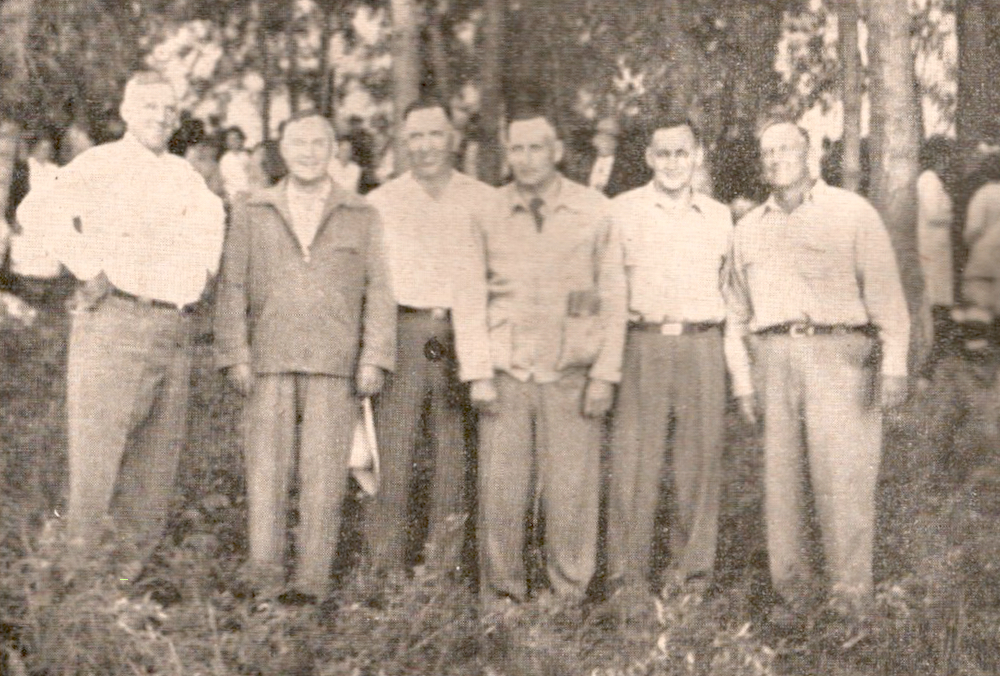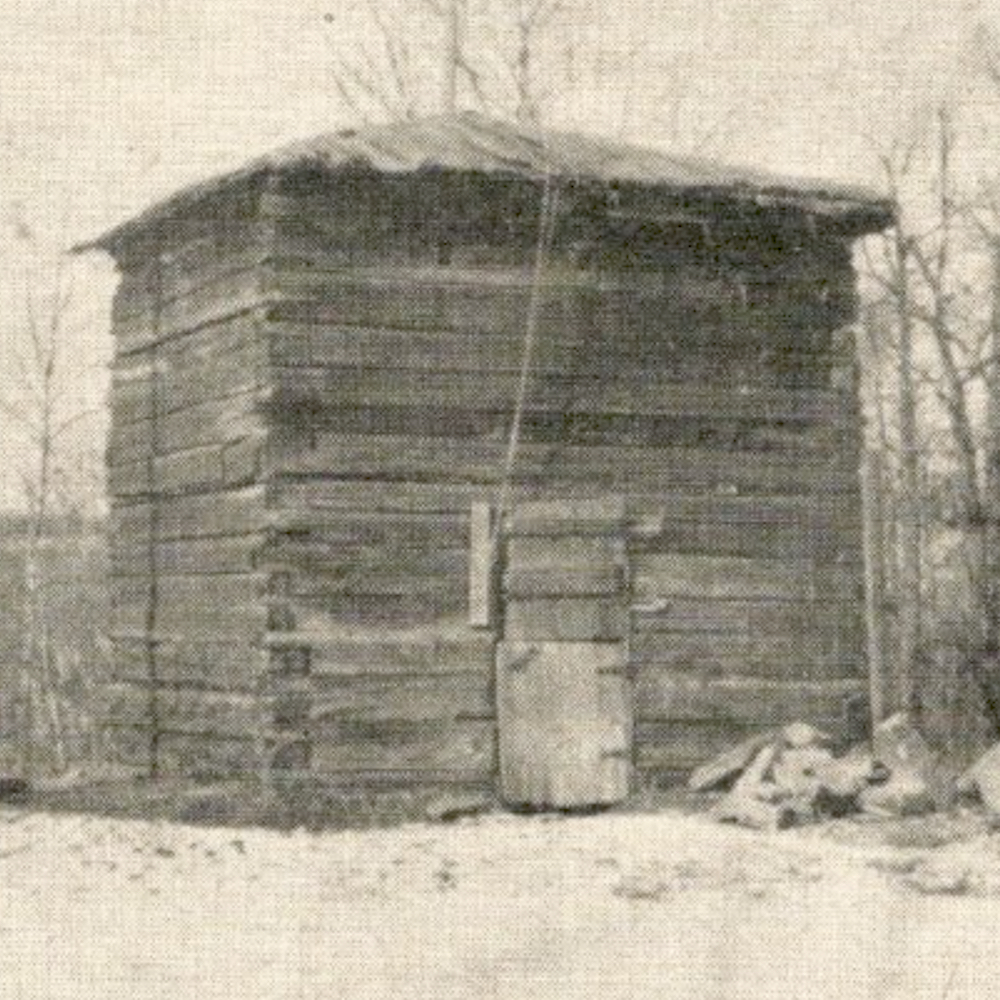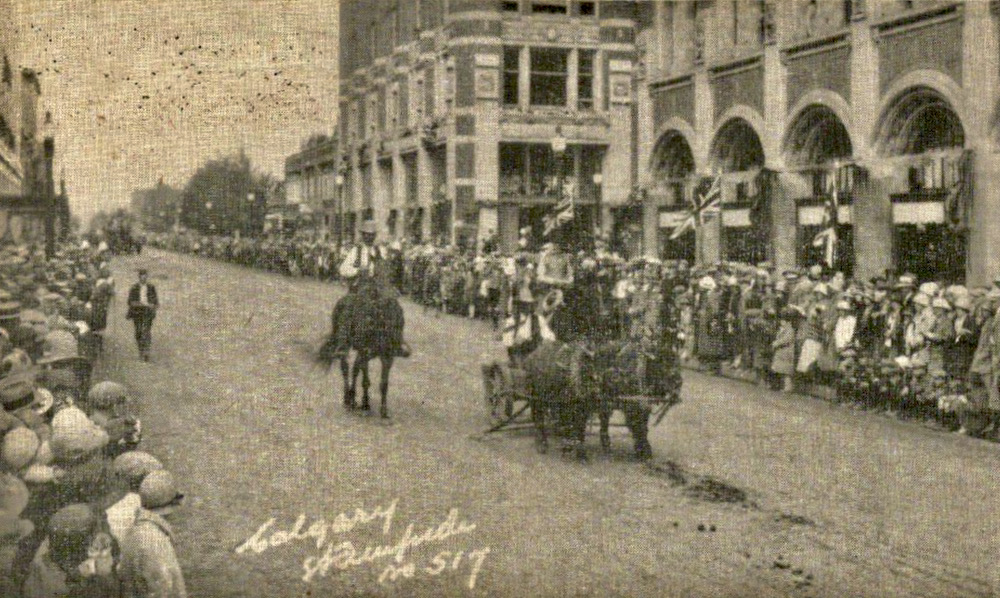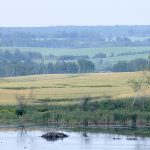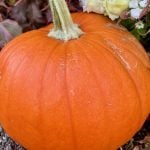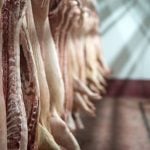Alberta’s Clan McKinnon
By Grant MacEwan
Barbecue beef is tops in good eating at any time but it never tasted better than when 1,000 friends and guests consumed over 500 pounds of it and picked the bones at the annual McKinnon Family Picnic at the beginning of August. Of the 12 children of Mrs. McKinnon and the late Lachlan McKinnon, all six sons and three of six daughters were present with their mother to receive the guests from far and near at the old home place by the Bow River, south of Langdon.
Read Also
History: Reminiscences of the North West Rebellion, 1885
Reminiscences of the North West Rebellion, 1885By Annie L. Gaetz ‘The seat of the North West Rebellion of 1885, was…
The children and grandchildren of that pioneer couple make a sizeable population by themselves, but the McKinnon influence has gone far beyond the successes in farming and ranching to quality of citizenship and positions of responsibility held by its members. It is doubtful if any pioneer family has contributed more to the life of rural Alberta or Western Canada.
“Lockie” McKinnon was born in Grey County in Ontario in 1865. When he journeyed into the new West arriving in Calgary in 1886 he was 21 years of age. General Strange, who had been operating the Military Colonization Ranch on the north side of the Bow River southwest of Calgary from 1881, needed a chore boy and on May 10 hired this Ontario youngster at $30 a month. But after 17 days of such employment, he was promoted to ranch hand and his ambition to ride the range was fulfilled.
Except for a year with A.H. Goldfinch, Lachlan McKinnon remained with the Military Colonization Co. until 1891 when he yielded to the urgings of D.H. Andrews and accepted employment with that famous ranching company, the “76.” The uninhibited life of a cowboy suited this young fellow. He gained wide experience across the broad ranching country. He was trusted to represent his ranching company at various round-ups; he had been with the Bar U wagon in 1890, representing the Military Colonization and in 1891, ’92 and ’93 he was the “76” representative with the Oxley round-up wagon.
In the autumn of 1893, Miss Sarah Whitney, who had come with her family from Collingwood, Ontario, to settle in the Langdon district became Mrs. Lachlan McKinnon. The young couple rented a farm and in 1894 purchased and moved to a small place on the Bow River. He built a long house using driftwood taken from the river for most of it. It was there and then that Lachlan founded a herd with the “LK” brand, joining for round-ups with neighbours Moorehouse, Newbolt, Addeman, Begg, Brown, Cowen and others.
The McKinnons had an attractive setting for their new home on the banks of the Bow. But in two of those early years “old man river” came up to flood the house site and the decision was made to move a couple of miles down stream to the spot where the famous McKinnon picnics are now an annual institution. There the pioneer built again and raised his big family.
Gradually “Lockie” McKinnon’s land holdings were extended and his herds grew. In 1915 he threshed over 42,000 bushels of grain and in 1923 some 550 McKinnon acres produced an average of 55 bushels of wheat per acre. It was the year in which the Alberta Wheat Pool was organized and the new pool was allowed to handle all of that big crop. The McKinnon land was mechanized but on some years as many as 75 horses were in use for field work.
In 1921 Mr. McKinnon formed a family ranching enterprise known as the LK Ranch and Farming Company with eldest son Charles as manager, Don J. as ranch foreman and Angus as farm foreman.
Next year, the McKinnons acquired ranch property south of Bassano. This included 500 head of cattle with the XL Lease. In 1925, the Round T ranch with 1,400 acres of deeded land and 47,000 acres of lease was acquired. There were holdings also at Dalemead, Airdrie and Calgary to make theirs one of Alberta’s biggest enterprises. In the early ’40s cattle wearing one or another of the McKinnon brands numbered about 4,000.
The original family enterprise, the LK Ranch and Farming Company, was dissolved after 1935 with the various members continuing to operate independently. One of the new ranching enterprises took a similar name, The LK Ranching Co., operated by Charles McKinnon and sons.
In due time Mr. and Mrs. McKinnon retired from active participation in ranch life to live in Calgary but retained their interests in many aspects of Alberta life. Lachlan, who had been active in community affairs, Municipal Council, U.F.A., and so on was now an active member of the Calgary Board of Trade; for many years he was a director of the Western Stock Growers’ Association and for a term he was president of the South Alberta Old Timer’s Association.
In the pioneer years, schooling presented a problem. Before there was an organized school district a private teacher was employed. After a municipal school was built and the teacher boarded at the McKinnon home, those who drove from that home could have outnumbered all the other pupils on many days. When the provincial School of Agriculture at Olds opened in the fall of 1913, two of the McKinnon boys enrolled and three members of the family later entered the University of Alberta and graduated.
The elder McKinnons saw their sons and daughters take places among the solid citizens of the West, holding positions of respect and responsibility in public service, a member of the Provincial Legislature, a member of the Bow River Flood Commission, a president of the Calgary Chamber of Commerce, a vice-president of the Canadian Shorthorn Association, a president of the Council of Canadian Beef Producers, a president and director of the Western Stock Growers’ Association, an exploration manager for a leading oil company, a director of the Calgary Exhibition and Stampede, leaders in junior club work and so on.
‘Our History’ is curated by former Canadian Cattlemen editor, Gren Winslow.

